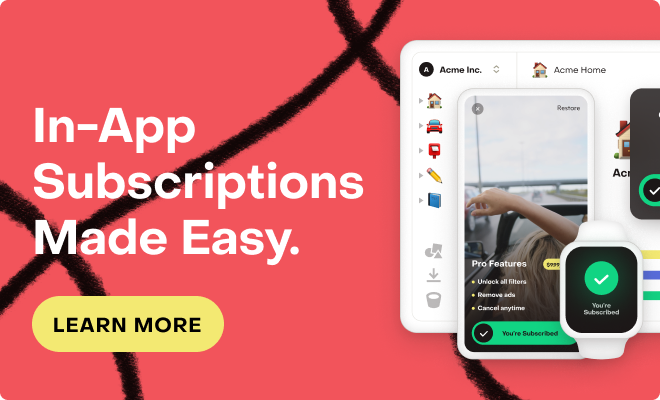Hi,
We’re working on a Flutter application with one of the main features requiring in-app-purchases.
Due to requirement of integrating our back-end (webhooks), as well as collaborators, we’d sign up for the “Starter” plan (https://www.revenuecat.com/pricing).
Before we do sign up, kindly please clarify:
-
Do you have any plans for integrating PayPal as well? You already provide Stripe integration, but no PayPal – is this in the plans or is there perhaps some limitation on PayPal side which prevents such, or perhaps other reason which you can disclose. Or is adding PayPal as payment method to Google Store (https://support.google.com/store/answer/6160267?hl=en) / Apple Store (https://support.apple.com/en-us/HT202631) on customer’s side the only way to have such?
-
The single API for Google / Apple / Amazon and Stripe you provide through Flutter SDK (https://pub.dev/packages/purchases_flutter), as well as extensive documentation, are impressive. However, we have not found anything regarding Keycloak, which we mainly use as broker for both Google and Apple Sign-in in our app. We’ll need to integrate our backend (which is currently configured to only accept requests successfully authenticated via Keycloak) with your system via webhooks. Do you perhaps provide any documentation on this – I have not found anything via https://docs.revenuecat.com/docs nor https://community.revenuecat.com/search?q=keycloak
Regards,
MHS

